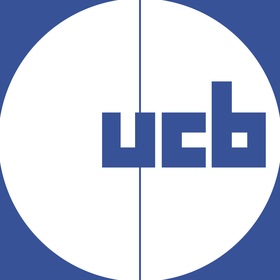Neupro® (rotigotine) improved motor, sleep and non-motor symptoms of Parkinson’s disease in large-scale study
FOR THE ATTENTION OF ACCREDITED MEDICAL WRITERS ONLY
Brussels (Belgium), 23 November 2010, 0700 CET – Data published today in Movement Disorders from the RECOVER study showed that treatment with Neupro® (rotigotine) improved motor function, sleep and non-motor symptoms, compared to placebo, improving quality of life for people with Parkinson’s disease (PD).1
The RECOVER study is the first large-scale, double-blind, randomized trial to investigate early morning motor function and sleep as coprimary outcome measures in Parkinson’s disease (PD).1 Data from the study showed that treatment with rotigotine significantly improved both early morning motor function and nocturnal sleep disturbance compared with placebo (p=0.0002 and p<0.0001 respectively).
Significant improvements were also seen with rotigotine in secondary and additional exploratory outcome measures related to sleep quality, pain, depression and activities of daily living. Rotigotine treatment was generally well tolerated and most reported adverse events were mild or moderate in intensity (placebo, 96%; rotigotine, 97%).1 The most frequently reported adverse events in the study were nausea, application site reactions and dizziness.1
“Sleep disturbance, impairment of early morning motor function and health-related quality of life are common and important nocturnal, early-morning, and daytime problems for PD patients” said Dr Claudia Trenkwalder, Professor of Neurology at University of Goettingen and Paracelsus-Elena Klinik, Kassel, Germany and lead RECOVER study investigator. “The RECOVER study demonstrated benefits with rotigotine on each of these outcomes. It also demonstrated the clinical benefits of continuous rotigotine delivery, as efficacy was maintained throughout the night and into the next morning, and significantly improved the start of the new day, one of the most troubling times for PD patients.”
About the RECOVER trial
Of the 287 Parkinson’s patients with unsatisfactory early-morning motor symptom control in the RECOVER study (Randomized Evaluation of the 24-hour Coverage: Efficacy of Rotigotine), 190 were randomized to rotigotine and 97 to placebo. The dose of rotigotine or placebo was tailored to individual patient need (2-16mg/24h or placebo) during a titration period lasting up to 8 weeks, followed by a 4-week maintenance period.
Early morning motor function was assessed using the Unified Parkinson’s Disease Rating Scale (UPDRS) Part III (Motor Examination), a comprehensive widely used evaluation of motor symptoms as well as cognition, behaviour and mood. Sleep quality was assessed using the modified Parkinson’s Disease Sleep Scale (PDSS-2). Patients were hospitalized for two nights before assessment at baseline and again at the end of the maintenance period. Patient evaluations were made first thing in the morning by medical professionals. The coprimary efficacy endpoints were the mean change from baseline to end of maintenance in UPDRS Part III and PDSS-2 scores. Non-motor symptoms were assessed either as secondary or additional exploratory outcome measures.
Coprimary efficacy outcomes
Rotigotine provided significantly greater improvement in early morning motor symptoms than placebo, as measured by mean UPDRS Part III (Motor Examination) (-7.0 vs -3.9 points; treatment difference -3.55; p=0.0002). Rotigotine also provided significantly greater improvement than placebo in sleep quality scores as measured by mean PDSS-2 (-5.9 vs -1.9 points; treatment difference -4.26; p<0.0001).
Additional efficacy measures
All three PDSS-2 domain scores (disturbed sleep, motor symptoms at night and PD symptoms at night) showed significantly greater improvement with rotigotine than placebo from baseline to end of treatment (p < 0.001). All 15 individual items within these domains except “distressing hallucinations” showed improvement in the rotigotine group; with significant improvements on 10 items, particularly “difficulty falling asleep”, “urge to move arms or legs” and “uncomfortable and immobile”.
Greater improvement was seen with rotigotine than placebo on the Nocturnal Akinesia, Dystonia and Cramps Score (NADCS) (p = 0.030) and the mean Non-Motor Symptom scale (NMS) (p=0.015), with significant differences on the individual scores for sleep/fatigue and mood/cognition (p = 0.002 and 0.0003 respectively). Significantly greater effects were also seen on the Beck Depression Inventory (BDI-II) (p= 0.011), the Likert pain scale (p=0.004), the Short-form Parkinson’s Disease Questionnaire (PDQ-8) (p= 0.0002) and the UPDRS Part II (activities of daily living) (p = 0.0005).
Very little change was seen for either group in the number of nocturias (excessive urination at night) or the UPDRS Part IV (complications of therapy) scores.
Tolerability
The most frequently reported adverse events in the RECOVER study were nausea (rotigotine 21%, placebo 9%), application site reactions (rotigotine 15%, placebo 4%), and dizziness (rotigotine 10%, placebo 6%).
For further information
Nancy Nackaerts, External Communications, UCB
T +32.473.864.414, nancy.nackaerts@ucb.com
Eimear O Brien, Associate Director, Global CNS Communications
T +32 2 559 9271, eimear.obrien@ucb.com
About Neupro® in the EU/EEA
Neupro® (rotigotine) is approved in the EU/EEA for the treatment of the signs and symptoms of early-stage idiopathic Parkinson’s disease, as monotherapy (i.e. without levodopa) or in combination with levodopa, i.e. over the course of the disease, through to late stages when the effect of levodopa wears off or becomes inconsistent and fluctuations of the therapeutic effect occurs. Neupro® is also approved in the EU/EEA for the symptomatic treatment of moderate to severe idiopathic restless legs syndrome in adults.
Neupro® in the EU/EEA Important Safety Information
Neupro® is contraindicated in case of hypersensitivity to the active substance or to any of its excipients, and in case of magnetic resonance imaging (MRI) or cardioversion. Neupro® should be removed if the patient has to undergo MRI or cardioversion.
It is recommended to monitor blood pressure, especially at the beginning of treatment, due to the general risk of orthostatic hypotension associated with dopaminergic therapy.
Neupro® has been associated with somnolence episodes of sudden sleep onset episodes. Patients treated with dopamine agonists including Neupro®, have been reported as exhibiting signs of pathological gambling, increased libido and hypersexuality.
Symptoms suggestive of neuroleptic malignant syndrome have been reported with abrupt withdrawal of dopaminergic therapy. Therefore it is recommended to taper treatment.
Neupro® contains sodium metabisulphite, a sulphite that may cause allergic-type reactions including anaphylactic symptoms and life threatening or less severe asthmatic episodes in certain susceptible people.
Hallucinations have been reported, and patients should be informed that hallucinations can occur.
Cases of cardiopulmonary fibrotic complications have been reported in some patients treated with ergot-derived dopaminergic agents. Neuroleptics given as antiemetic should not be given to patients taking dopamine agonists. Ophthalmologic monitoring is recommended at regular intervals or if vision abnormalities occur.
External heat, from any source should not be applied to the area of the patch. Exposure of a skin rash or irritation to direct sunlight could lead to changes in the skin color. If a generalized skin reaction (e.g. allergic rash) associated with the use of Neupro® is observed, Neupro® should be discontinued.
Caution is advised when treating patients with severe hepatic impairment or acute worsening of renal function, a dose reduction might be needed.
The incidence of some dopaminergic adverse events, such as hallucinations, dyskinesia, and peripheral oedema generally is higher when given in combination with L-dopa. This should be considered when prescribing Neupro®.
Neupro® should not be used during pregnancy. Breast-feeding should be discontinued.
Augmentation may occur in Restless Legs Syndrome patients. Augmentation refers to the earlier onset of symptoms in the evening (or early afternoon), increase in severity of symptoms, and spread of symptoms to involve other body parts.
Adverse drug reactions reported in more than 10% of Parkinson’s patients treated with Neupro® are nausea, vomiting, application site reactions, somnolence, dizziness and headache.
Adverse drug reactions reported in more than 10% of RLS patients treated with Neupro® are nausea, application site reactions, asthenic conditions and headache.
All Neupro® supply should be stored in a refrigerator. There is no need for patients to transport Neupro® patches in special containers and they must not be stored in a freezer compartment.
Please refer to the European Summary of Product Characteristics for full prescribing information (Approved 18th August 2010): http://www.ema.europa.eu/docs/en_GB/document_library/EPAR_-_Product_Information/human/000626/WC500026397.pdf
About Neupro® in the U.S.
In May 2007 Neupro® (rotigotine transdermal system) was approved by the U.S. Food and Drug Administration (FDA) for the treatment of the signs and symptoms of early-stage idiopathic Parkinson’s disease. In April 2008, UCB recalled Neupro® from the U.S. market after ongoing monitoring revealed that specific batches of Neupro® had deviated from their approved specification. Neupro® is currently not available in the U.S. UCB is working with the U.S. FDA so that Neupro® can be available to patients with early-stage Parkinson’s disease as soon as possible.
Important Safety Information - U.S.
Hallucinations were reported in 2.0% of patients treated with Neupro® compared to 0.7% of patients on placebo. Neupro® contains metabisulfite. Neupro® should be used with caution in patients, especially those at risk for cardiovascular disease, because of the potential for symptomatic hypotension, syncope, elevated heart rate, elevated blood pressure, fluid retention, and/or weight gain. All Parkinson’s disease patients are at a higher risk for melanoma and should be monitored regularly. Some subjects who received Neupro® experienced a decline in blood hemoglobin levels (about 2% relative to subjects who received placebo). It is not known whether this change is readily reversible with discontinuation of Neupro®.
Neupro® is a registered trademark of the UCB Group of companies.
Please go to http://www.neupro.com/documents/Neupro_PI_071207.pdf for US Full Prescribing Information.
References
- Trenkwalder C, Kies B, Rudzinska M, Fine J, Nikl J, Honczarenko K, Dioszeghy P, Hill D, Anderson T, Myllyla V, Kassubek J, Steiger M, Zucconi M, Tolosa E, Poewe W, Surmann E, Whitesides J, Boroojerdi B, Chaudhuri KR, and the RECOVER study group. Rotigotine Effects on Early Morning Motor Function and Sleep in Parkinson’s Disease: A Double-Blind, Randomized, Placebo-Controlled Study (RECOVER). Movement Disorders, n/a. doi: 10.1002/mds.23441
- Neupro® European Summary of Product Characteristics (Approved 18 August, 2010): http://www.ema.europa.eu/docs/en_GB/document_library/EPAR_-_Product_Information/human/000626/WC500026397.pdf
About UCB
UCB, Brussels, Belgium (www.ucb.com) is a global biopharmaceutical company focused on the discovery and development of innovative medicines and solutions to transform the lives of people living with severe diseases of the immune system or of the central nervous system. With more than 8 000 people in about 40 countries, the company generated revenue of EUR 3.1 billion in 2009. UCB is listed on Euronext Brussels (symbol: UCB).
Forward looking statement
This press release contains forward-looking statements based on current plans, estimates and beliefs of management. Such statements are subject to risks and uncertainties that may cause actual results to be materially different from those that may be implied by such forward-looking statements contained in this press release. Important factors that could result in such differences include: changes in general economic, business and competitive conditions, effects of future judicial decisions, changes in regulation, exchange rate fluctuations and hiring and retention of its employees.
Asset Download
Stay up-to-date on the latest news and information from UCB


